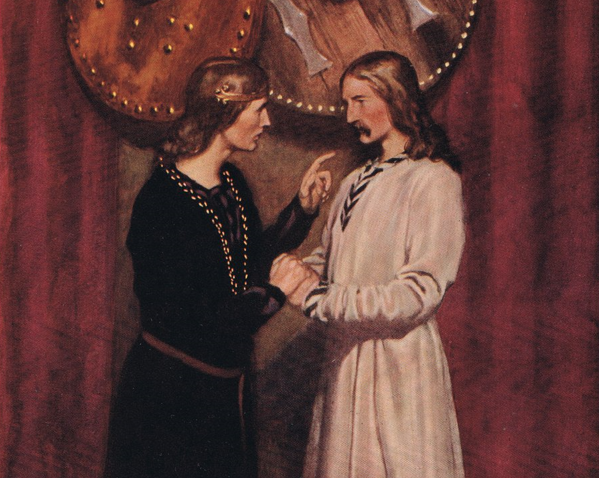What is Truth?

This week’s theme for the school is Veritas - Truth, and we heard in this week's assembly, a reflection on this theme and its application to the Christian life.
All people who follow a religion believe that there is such a thing as an objective Truth. Christians believe that this Truth (with a capital T) has its identity in the person of Jesus Christ.
This notion of an objective Truth has, however, been challenged by thinkers and artists over the last 150 or more years, particularly in the movement known as postmodernism. Always ahead of the game, in his play Hamlet, written over 400 years ago, Shakespeare has Hamlet say to his friend Horatio, ‘there is nothing either good or bad but thinking makes it so,’ which implies a lack of belief in an objective truth of reality or experience and that truth is a construct of the individual mind. As always with Shakespeare, however, we must be careful of confusing Shakespeare’s own views (which are notoriously difficult to deduce) with those of the characters he creates. Indeed, by the end of the play, Hamlet seems to have come to the conclusion that there is such a thing as objective Truth, when he says, “There’s a divinity that shapes our ends,” suggesting that there is in fact a divine force – God - overseeing the universe.

In more recent works of art too, this idea of different truths is explored. In the great Japanese director Akira Kurosawa’s film Rashomon, he tells the same story of a murder from the point of view of different characters, who see things very differently. Ian McEwan’s wonderful novel Atonement – which some of you are studying for your A level English course – centres around what we call an unreliable narrator, and ideas of objective truth.
The name that philosophers give to the idea that there is no objective truth, but rather merely different truths depending on our point of view or experience – is Relativism. One of the first relativists seems to have been Pontius Pilate, who posed the question, “What is Truth?” in response to Jesus speaking of truth, just before he condemned Jesus to death. Pilate’s worldview was one of relativistic moral chaos.
As we know, however, there have been incredibly courageous men and women throughout history who have believed in the existence of an objective Truth, and who have made the ultimate sacrifice in the light of this belief.
For reasons which I won’t go into, in the last couple of weeks I have had to think very carefully about the nature of truth. Building on the reflection we heard earlier, and Pope Francis’s words, my message to you as we begin this new calendar year, is to encourage you to identify the truth of who you are, who God made you to be, and then to live your lives authentically, consistently with your true self. We are helped in this by having been given a conscience – that ‘still small voice of calm’ – that niggles at us when we behave inauthentically, and helps nudge us back on track.